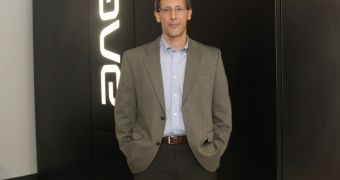Google recently announced that it had bought a quantum computer, the second ever sold commercially. The company plans to put it to use solving difficult problems that regular computers aren't great at.
Lockheed Martin, who bought the first ever quantum computer, does the same. There's just one problem: people can't actually agree whether the device is a quantum computer or not.
The system is built by D-Wave, and the computer has 512 qubits, modeled by 512 superconducting electrical circuits cooled to almost absolute zero. Because of the temperature, the circuits start showing quantum behavior – the current in them travels in both directions at the same time.
In a regular processor, a bit can be either 0 or 1, and it can store one bit of information. In a quantum processor, a bit can be 0, 1, or both at the same time.
This superposition of states is at the core of quantum computing theory; it's what allows these computers to be exponentially faster than regular computers.
But many scientists and researchers in the field were afraid to call D-Wave's system a quantum computer, since they weren't sure it qualified. Specifically, they weren't convinced that the computer used quantum effects in its processing.
Now, a new research paper done on Lockheed Martin's system, which is housed at the University of Southern California, shows that the computer doesn't use classical effects in its processing and that it could be using quantum effects.
The researchers devised a problem which only used 8 qubits and then checked how the computer solved it. They found that the D-Wave processor is definitely not using classical methods to solve the problem. They also found that the way it gets a result is consistent with quantum methods.
That, of course, doesn't prove that it is a quantum computer, it just proves that it doesn't use a classical method of solving problems, one that any classical computer could use.
But even if D-Wave is proven to use quantum effects, some still won't call it a quantum computer because it's not a universal computer. It can solve specific types of problems much faster than a classic computer, but it can't be used to tackle any sort of computing challenge.

 14 DAY TRIAL //
14 DAY TRIAL //